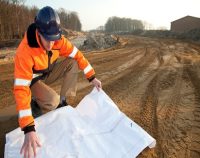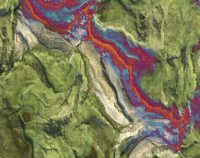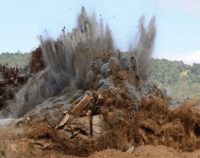Showing 181–200 of 669 results
North Carolina – Laws, Rules, and Ethics for Professional Engineers: 3 PDH
$18.00 Add to cartNorth Carolina Approved Sponsor No:S-0650In this course the student will study the North Carolina State Board of Examiners for Engineers and Surveyors Laws and Rules, including Professional Engineering Ethics. A twenty-five question quiz will test his or her understanding of the subject.Instructor: Raymond Bosek, PEIn this course the student will study the North Carolina State Board of Examiners for Engineers and Surveyors Laws and Rules, including Professional Engineering Ethics. A twenty-five question quiz will test his or her understanding of the subject.
SPECIFIC KNOWLEDGE OR SKILL OBTAINED
This course teaches the following specific knowledge and skills:
- The engineer’s guidelines for practicing within North Carolina's laws and rules
- The engineer’s duty to protect the public
- The engineer’s duty to make objective and truthful statements
- The engineer’s duty to limit practice to his or her field of competence
- The engineer’s duty to maintain client confidentiality
- The engineer’s responsibility to the profession
CERTIFICATE OF COMPLETION
You will be able to immediately print a certificate of completion after passing a 25 question multiple-choice quiz. The quiz can be retaken unlimited times until a passing grade of 70% or better is earned. This course satisfies 3 professional development hours (PDH) of continuing education.
Preview CourseClick” Preview Course” to View Prior to PurchaseClick “Add to Cart” to Purchase and Access QuizNorth Carolina–Standards of Practice for Land Surveying: 1 PDH
$6.00 Add to cartIn this course the student will review and examine the standards of practice for land surveying in North Carolina and satisfy the one hour of continuing education required by the 21 NCAC 56.1703.Instructor: Raymond Bosek, PESPECIFIC KNOWLEDGE OR SKILL OBTAINED
This course teaches the following specific knowledge and skills:
- Explain the standards of practice for boundary surveys in North Carolina
- Understand the reasons for and why
- Discuss the final products of a properly performed survey
- Discuss accuracy and tolerance requirements
CERTIFICATE OF COMPLETION
You will be able to immediately print a certificate of completion after passing a ten (10) question multiple-choice quiz. The quiz can be retaken unlimited times until a passing grade of 70% or better is earned. This course satisfies one (1) professional development hour (PDH) of continuing education.
Preview CourseClick “Preview Course” to View Prior to PurchaseClick “Add to Cart” to Purchase and Access QuizNorth Dakota – Statutes, Rules, and Ethics for Professional Engineers: 3 PDH
$18.00 Add to cartIn this course the student will study the North Dakota State Board of Registration for Professional Engineers and Land Surveyors Statutes and Rules including Ethics. A twenty-five question quiz will test his or her understanding of the subject.Instructor: Seth Grablow, PEIn this course the student will study the North Dakota State Board of Registration for Professional Engineers and Land Surveyors Statutes and Rules including Ethics. A twenty-five question quiz will test his or her understanding of the subject.
SPECIFIC KNOWLEDGE OR SKILL OBTAINED
This course teaches the following specific knowledge and skills:
- The engineer’s guidelines for practicing within North Dakota's statutes and rules
- The engineer’s duty to protect the public
- The engineer’s duty to make objective and truthful statements
- The engineer’s duty to limit practice to his or her field of competence
- The engineer’s duty to maintain client confidentiality
- The engineer’s responsibility to the profession
CERTIFICATE OF COMPLETION
You will be able to immediately print a certificate of completion after passing a 25 question multiple-choice quiz. The quiz can be retaken unlimited times until a passing grade of 70% or better is earned. This course satisfies 3 professional development hours (PDH) of continuing education.
Preview CourseClick Preview Course to View Prior to PurchaseClick Add to Cart to Purchase and Access QuizOhio – Laws, Rules, and Ethics for Professional Engineers & Surveyors: 3 PDH
$18.00 Add to cartThis course satisfies Ohio R.C. section 4733.151 as a CPD correspondence course. Ohio licensees are allowed up to three hours of correspondence courses per year.In this course the student will study the Ohio State Board of Registration for Professional Engineers and Surveyors Laws and Rules, including Professional Engineering Ethics. A twenty-five question quiz will test his or her understanding of the subject.Instructor: Raymond Bosek, PEIn this course the student will study the Ohio State Board of Registration for Professional Engineers and Surveyors Laws and Rules, including Professional Engineering Ethics. A twenty-five question quiz will test his or her understanding of the subject.
SPECIFIC KNOWLEDGE OR SKILL OBTAINED
This course teaches the following specific knowledge and skills:
- The engineer’s guidelines for practicing within Ohio's laws and rules
- The engineer’s duty to protect the public
- The engineer’s duty to make objective and truthful statements
- The engineer’s duty to limit practice to his or her field of competence
- The engineer’s duty to maintain client confidentiality
- The engineer’s responsibility to the profession
CERTIFICATE OF COMPLETION
You will be able to immediately print a certificate of completion after passing a 25 question multiple-choice quiz. The quiz can be retaken unlimited times until a passing grade of 70% or better is earned. This course satisfies 3 professional development hours (PDH) of continuing education.
Preview CourseClick “Preview Course” to view prior to purchaseClick “Add to Cart” to purchaseOklahoma – Statutes, Rules, and Ethics for Professional Engineers: 3 PDH
$18.00 Add to cartIn this course the student will study the Oklahoma State Board of Licensure for Professional Engineers and Land Surveyors Statutes and Rules including Ethics. A twenty-five question quiz will test his or her understanding of the subject.Instructor: Seth Grablow, PEIn this course the student will study the Oklahoma State Board of Licensure for Professional Engineers and Land Surveyors Statutes and Rules including Ethics. A twenty-five question quiz will test his or her understanding of the subject.SPECIFIC KNOWLEDGE OR SKILL OBTAINED
This course teaches the following specific knowledge and skills:
- The engineer’s guidelines for practicing within Oklahoma's statutes and rules
- The engineer’s duty to protect the public
- The engineer’s duty to make objective and truthful statements
- The engineer’s duty to limit practice to his or her field of competence
- The engineer’s duty to maintain client confidentiality
- The engineer’s responsibility to the profession
CERTIFICATE OF COMPLETION
You will be able to immediately print a certificate of completion after passing a 25 question multiple-choice quiz. The quiz can be retaken unlimited times until a passing grade of 70% or better is earned. This course satisfies 3 professional development hours (PDH) of continuing education.
Preview CourseClick “Preview Course” to view prior to purchaseClick “Add to Cart” to purchaseOklahoma Minimum Standards for the Practice of Land Surveying: 2 PDH
$12.00 Add to cartIn this course the student will review and examine with the standards of practice for land surveying in Oklahoma and satisfy the two hours of continuing education required by the O.A.C. §245:15-11-5.Instructor: Raymond Bosek, PESPECIFIC KNOWLEDGE OR SKILL OBTAINED
This course teaches the following specific knowledge and skills:
- Explain the standards of practice for boundary surveys in Oklahoma
- Understand the reasons for and why
- Discuss the final products of a properly performed survey
- Discuss accuracy and tolerance requirements
CERTIFICATE OF COMPLETION
You will be able to immediately print a certificate of completion after passing a ten (10) question multiple-choice quiz. The quiz can be retaken unlimited times until a passing grade of 70% or better is earned. This course satisfies two (2) professional development hours (PDH) of continuing education.
Preview CourseClick “Preview Course” to View Prior to PurchaseClick “Add to Cart” to Purchase and Access QuizOregon – Statutes, Rules, & Ethics for Professional Engineers: 3 PDH
$18.00 Add to cartIn this course the student will study the Oregon State Board of Examiners for Engineering and Land Surveying Statutes and Rules, including Professional Engineering Ethics. A Twenty-five question quiz will test his or her understanding of the subject.Instructor: Juan Pesante, PEIn this course the student will study the Oregon State Board of Examiners for Engineering and Land Surveying Statutes and Rules, including Professional Engineering Ethics. A twenty-five question quiz will test his or her understanding of the subject.
SPECIFIC KNOWLEDGE OR SKILL OBTAINED
This course teaches the following specific knowledge and skills:
- The engineer's guidelines for practicing within Oregon's statutes and rules
- The engineer’s duty to protect the public
- The engineer’s duty to make objective and truthful statements
- The engineer’s duty to limit practice to his or her field of competence
- The engineer’s duty to maintain client confidentiality
- The engineer’s responsibility to the profession
CERTIFICATE OF COMPLETION
You will be able to immediately print a certificate of completion after passing a 25 question multiple-choice quiz. The quiz can be retaken unlimited times until a passing grade of 70% or better is earned. This course satisfies 3 professional development hours (PDH) of continuing education.
Preview CourseClick” Preview Course” to View Prior to PurchaseClick “Add to Cart” to Purchase and Access QuizOSHA Noise Hazards: 0.5 PDH (On-Demand Webinar)
$6.00Original price was: $6.00.$0.00Current price is: $0.00. Add to cartThis Course presents an overview of the hazards of workplace noise, especially evident in the construction industry; and steps to identity, mitigate, and control this hazard.Instructor: Raymond Bosek, PESPECIFIC KNOWLEDGE OR SKILL OBTAINED
This course teaches the following specific knowledge and skills:
- Describe the hazards of high noise levels in the workplace
- Describe causes and effects of hearing damage
- Discuss the tools used to identify hazards
- Describe the methods to mitigate hazards
- Discuss the various hearing protection devices
CERTIFICATE OF COMPLETION
You will be able to immediately print a certificate of completion after passing a five (5) question multiple-choice quiz. The quiz can be retaken unlimited times until a passing grade of 70% or better is earned. Records also are available anytime online by accessing your account on EZ-pdh.com. This course satisfies 0.5 professional development hours (PDH) of continuing education.
Our On-demand Webinars are recorded from live webinars conducted utilizing GotoWebinar.com service (chosen for reliability, ease of use, no software required and ability to attend using your computer, tablet, or smart phone).Upon purchase your will have access to launch the On-demand Webinar.
The On-demand Webinar will play through similar to a live webinar, however you will have the ability to take anytime, pause/rewind and complete in more than one session.
Upon completion you will then answer a short five question quiz, which can be taken unlimited times until passing, immediately generating a certificate of completion.
You may print or save your certificate or access anytime within your account.Pavement Design for Roads, Streets, Walks, and Open Storage Areas: 6 PDH
$36.00 Add to cartThis online course provides guidance for design of pavements and supporting materials for roads, streets, walks and open storage areas. The contents include procedures for conducting preliminary site reconnaissance, traffic analyses, and criteria for the design of subgrade, subbase, base courses, flexible and rigid pavements.Instructor: Raymond Bosek, PEThis online course provides guidance for design of pavements and supporting materials for roads, streets, walks and open storage areas. The contents include procedures for conducting preliminary site reconnaissance, traffic analyses, and criteria for the design of subgrade, subbase, base courses, flexible and rigid pavements.
SPECIFIC KNOWLEDGE OR SKILL OBTAINED
This course teaches the following specific knowledge and skills:
- Preliminary Soil Investigations
- Vehicular Traffic Considerations
- Flexible Pavement Materials & Subgrades
- Bituminous Pavement
- Flexible Pavement Design
- Rigid Pavement Design
- Concrete Pavement Design
- Reinforced Concrete Pavements
- Pavement Overlays
- Joints For Plain & Reinforced Concrete
- Roller-Compacted Concrete Pavements
- Seasonal Frost Conditions
CERTIFICATE OF COMPLETION
You will be able to immediately print a certificate of completion after passing a 20 question multiple-choice quiz. The quiz can be retaken unlimited times until a passing grade of 70% or better is earned. This course satisfies 6 professional development hours (PDH) of continuing education.
Preview CourseClick “Preview Course” to View Prior to PurchaseClick “Add to Cart” to Purchase and Access QuizPennsylvania – Rules, Regulations, and Ethics for Professional Engineers: 3 PDH
$18.00 Add to cartIn this course the student will study the Pennsylvania State Board of Professional Engineers, Land Surveyors, and Geologists Laws, Rules, and Regulations including Professional Engineering Ethics. A twenty-five question quiz will test his or her understanding of the subject.Instructor: Raymond Bosek, PEIn this course the student will study the Pennsylvania State Board of Professional Engineers, Land Surveyors, and Geologists Laws, Rules, and Regulations including Professional Engineering Ethics. A twenty-five question quiz will test his or her understanding of the subject.SPECIFIC KNOWLEDGE OR SKILL OBTAINED
This course teaches the following specific knowledge and skills:
- The engineer’s guidelines for practicing within Pennsylvania's rules and regulations
- The engineer’s duty to protect the public
- The engineer’s duty to make objective and truthful statements
- The engineer’s duty to limit practice to his or her field of competence
- The engineer’s duty to maintain client confidentiality
- The engineer’s responsibility to the profession
CERTIFICATE OF COMPLETION
You will be able to immediately print a certificate of completion after passing a 25 question multiple-choice quiz. The quiz can be retaken unlimited times until a passing grade of 70% or better is earned. This course satisfies 3 professional development hours (PDH) of continuing education.
Preview CourseClick “Preview Course” to view prior to purchaseClick “Add to Cart” to purchasePhotovoltaic Power Systems: 1 PDH
$6.00 Add to cartIn this online course you will learn what a photovoltaic (PV) power system is and the following as it pertains to the PV system: Circuit requirements, Disconnecting means, Wiring methods, Grounding, Marking, and Connections to other sources.Instructor: Juan Pesante, PEIn this online course you will learn what a photovoltaic (PV) power system is and the following as it pertains to the PV system: Circuit requirements, Disconnecting means, Wiring methods, Grounding, Marking, and Connections to other sources.
SPECIFIC KNOWLEDGE OR SKILL OBTAINED
This course teaches the following specific knowledge and skills:
- Understand the various components and terminologies associated with photovoltaic systems
- Learn photovoltaic system’s circuit requirements and installation guidelines including wiring methods
- Discuss grounding methods as well as standard markings of photovoltaic system components
- Identify standard methods to connect to other power systems and loads
CERTIFICATE OF COMPLETION
You will be able to immediately print a certificate of completion after passing a ten (10) question multiple-choice quiz. The quiz can be retaken unlimited times until a passing grade of 70% or better is earned. This course satisfies one (1) professional development hours (PDH) of continuing education.
Preview CourseClick “Preview Course” to View Prior to PurchaseClick “Add to Cart” to Purchase and Access QuizPonds- Planning, Design, Construction: 2 PDH
$12.00 Add to cartThis course provides guidance on some of the required criteria the United States Department of Agriculture (USDA) has in place for the planning, design, construction and maintenance of ponds. This course describes basic design principles of embankment and excavation ponds as well as construction requirements. This online PDH course is intended for hydrologists, civil engineers, agricultural engineers, construction engineers, municipal engineers, geotechnical engineers and environmental engineers.Instructor: Raymond Bosek, PEThis course provides guidance on some of the required criteria the United States Department of Agriculture (USDA) has in place for the planning, design, construction and maintenance of ponds. This course describes basic design principles of embankment and excavation ponds as well as construction requirements. Topics include: water needs, preliminary soil investigations, watershed & stormwater runoff estimation, basin sealing, spillways and inlets, and operation & maintenance. This online PDH course is intended for hydrologists, civil engineers, agricultural engineers, construction engineers, municipal engineers, geotechnical engineers and environmental engineers.
SPECIFIC KNOWLEDGE OR SKILL OBTAINED
This course teaches the following specific knowledge and skills:
- Become familiar with the general features and the differences of embankment and excavated ponds
- How to perform a preliminary investigation
- Be able estimate storm water runoff quantity and rate using the runoff curve number method
- Estimate time of concentration for a watershed for a given flow length and average watershed slope
- Advantages and disadvantages of a hooded or canopy inlet spillway and a drop inlet spillway
- Estimate earthfill requirements for an embankment for known end areas and embankment length
- Estimate embankment end area for known embankment height, side slopes, and top width
CERTIFICATE OF COMPLETION
You will be able to immediately print a certificate of completion after passing a 16 question multiple-choice quiz. The quiz can be retaken unlimited times until a passing grade of 70% or better is earned. This course satisfies 2 professional development hours (PDH) of continuing education.
Preview CourseClick “Preview Course” to View Prior to PurchaseClick “Add to Cart” to Purchase and Access QuizPrescriptive Method for Structural Insulated Panels (SIPs) in Construction: 3 PDH
$18.00 Add to cartIn this course the student will learn prescriptive requirements to facilitate the use of Structural Insulated Panels (SIPs) in wall systems for the construction of one- and two-family dwellings. Instructor: Raymond Bosek, PESPECIFIC KNOWLEDGE OR SKILL OBTAINED
This course teaches the following specific knowledge and skills:
- Explain SIP materials, shapes, & standard sizes
- Understand prescriptive provisions for wall thickness selection
- Discuss Above grade wall requirements
- Discuss SIP header & connection details
- Explain construction details to design and construct residential wall systems using SIPs
CERTIFICATE OF COMPLETION
You will be able to immediately print a certificate of completion after passing a 15 question multiple-choice quiz. The quiz can be retaken unlimited times until a passing grade of 70% or better is earned. This course satisfies three professional development hours (PDH) of continuing education.
Preview CourseClick “Preview Course” to View Prior to PurchaseClick “Add to Cart” to Purchase and Access QuizPrinciples of Hydraulic and Pneumatic Systems: 4 PDH
$24.00 Add to cartIn this course the student will understand the basics of hydraulics and pneumatics systems, hydraulics and pneumatics system components, and the operation and maintenance of these systems. Instructor: Seth Grablow, PESPECIFIC KNOWLEDGE OR SKILL OBTAINED
This course teaches the following specific knowledge and skills:
- Explain the operating principles of hydraulic systems
- Discuss operation characteristics and component functions
- Discuss maintenance procedures of a hydraulic system
- Describe the operating principles of pneumatic systems
- Identifying operational characteristics and service procedures applicable to pneumatic systems
CERTIFICATE OF COMPLETION
You will be able to immediately print a certificate of completion after passing a 20 question multiple-choice quiz. The quiz can be retaken unlimited times until a passing grade of 70% or better is earned. This course satisfies four (4) hours of professional development (PDH).
Preview CourseClick “Preview Course” to view prior to purchaseClick “Add to Cart” to purchaseProcess Design for Conversion of Biomass to Biofuels: 4 PDH
$24.00 Add to cartIn this course you the student will understand the motivation, process, design, and cost of converting biomass into biofuel. The focus of this course is to find a plausible pathway to convert algal carbohydrates and lipids to fuel and to minimize cost during production.Instructor: Raymond Bosek, PEIn this course you the student will understand the motivation, process, design, and cost of converting biomass into biofuel. The focus of this course is to find a plausible pathway to convert algal carbohydrates and lipids to fuel and to minimize cost during production.SPECIFIC KNOWLEDGE OR SKILL OBTAINED
This course teaches the following specific knowledge and skills:
- Why the motivation to exploit this energy supply
- Process design and cost estimation
- Economics and processing cost factors
- Analysis of processing research on case study
- Future research and opportunities
CERTIFICATE OF COMPLETION
You will be able to immediately print a certificate of completion after passing a 20 question multiple-choice quiz. The quiz can be retaken unlimited times until a passing grade of 70% or better is earned. This course satisfies four (4) professional development hours (PDH) of continuing education.
Preview CourseClick “Preview Course” to View Prior to PurchaseClick “Add to Cart” to Purchase and Access QuizPublic Land Survey: Rectangular System: 8 PDH
$40.00 Add to cartIn this course the student will review the rectangular surveying system which has been used continuously in the United States since 1785. As all facets of this system occasionally come into use, the student will become well versed in the field procedures of conducting an original survey covering both historical and current methods.Instructor: Raymond Bosek, PESPECIFIC KNOWLEDGE OR SKILL OBTAINED
This course teaches the following specific knowledge and skills:
- Explain the general scheme of the rectangular system: points, meridian, base lines, parallels, etc.
- Understand township boundaries
- Discuss subdivision of townships
- Discuss extension and completion surveys
- Explain methods of section subdivision
- Discuss protraction diagrams and developing amended diagrams
- Explain methods of surveying amended protraction diagrams
- Discuss meandering & swamp/overflowed lands
- Discuss limits of closure for original survey & soil classification
- Understand legal settings of Ordinary High Water Mark (OHWM)
CERTIFICATE OF COMPLETION
You will be able to immediately print a certificate of completion after passing a 25 question multiple-choice quiz. The quiz can be retaken unlimited times until a passing grade of 70% or better is earned. This course satisfies eight professional development hours (PDH) of continuing education.
Preview CourseClick “Preview Course” to View Prior to PurchaseClick “Add to Cart” to Purchase and Access QuizPumped Storage Hydropower and Conduit Hydropower: 1 PDH
$6.00 Add to cartIn this online course a student will learn about the different ways pumped storage hydropower and conduit hydropower can enhance renewable energy portfolio's, the steps necessary to develop this new technology, and the common barriers encountered for deployment.Instructor: Seth Grablow, PEIn this online course a student will learn about the different ways pumped storage hydropower and conduit hydropower can enhance renewable energy portfolio's, the steps necessary to develop this new technology, and the common barriers encountered for deployment.
SPECIFIC KNOWLEDGE OR SKILL OBTAINED
This course teaches the following specific knowledge and skills:
- Understanding of pumped storage hydropower
- Understanding of potential hydropower from conduits
- Addresses the technical flexibility that existing pumped storage facilities can provide to support intermittent renewable energy generation
- Describing grid reliability benefits
- Understanding the differences between Pumped storage hydropower and conduit hydropower
- Safety aspects of constructing conduit hydropower projects on existing water-conveyance structures
- Current status and the future outlook for PSH in the United States
CERTIFICATE OF COMPLETION
You will be able to immediately print a certificate of completion after passing a 10 question multiple-choice quiz. The quiz can be retaken unlimited times until a passing grade of 70% or better is earned. This course satisfies three (1) continuing education hour (CEH)/professional development hour (PDH) of continuing education.
Preview CourseClick” Preview Course” to View Prior to PurchaseClick “Add to Cart” to Purchase and Access QuizRemote Sensing Essentials: 5 PDH
$30.00 Add to cartIn this course the student will understand the theory and practice of remote sensing and image processing. Remote sensing is valuable tool for engineers and surveyors as it provides a cost-effective means of surveying, monitoring, and mapping objects at or near the surface of the Earth.Instructor: Raymond Bosek, PESPECIFIC KNOWLEDGE OR SKILL OBTAINED
This course teaches the following specific knowledge and skills:
- Explain remote sensing and its applications
- Discuss the basic components of remote sensing
- Discuss the history and future of remote sensing
- Understand three-dimensional (3d) data acquisition
- Describe elements of processing geospatial data
- Explain image enhancements
- Explain Digital Elevation Models (DEMs)
CERTIFICATE OF COMPLETION
You will be able to immediately print a certificate of completion after passing a 20 question multiple-choice quiz. The quiz can be retaken unlimited times until a passing grade of 70% or better is earned. This course satisfies five (5) hours of professional development (PDH).
Preview CourseClick “Preview Course” to view prior to purchaseClick “Add to Cart” to purchaseResidential Structural Design: 5 PDH
$30.00 Add to cartIn this course the student will understand the basics of residential construction and design, residential structural design concepts and design loads for residential buildings and to gain an understanding of modern design methods and concepts for light-frame homes, apartments, and townhouses.Instructor: Raymond Bosek, PESPECIFIC KNOWLEDGE OR SKILL OBTAINED
This course teaches the following specific knowledge and skills:
- Explain American housing relative to its history, construction characteristics, regulation, and performance experience
- Discuss structural sesign as it applies to residential buildings
- Discuss the latest technical knowledge and engineering approaches for the design of homes
- Explain design loads for residential buildings
- Explain the various loads and load combinations
- Review the various design approaches and corresponding calculations
CERTIFICATE OF COMPLETION
You will be able to immediately print a certificate of completion after passing a 20 question multiple-choice quiz. The quiz can be retaken unlimited times until a passing grade of 70% or better is earned. This course satisfies five (5) hours of professional development (PDH).
Preview CourseClick “Preview Course” to view prior to purchaseClick “Add to Cart” to purchaseRock Excavations Blasting Design Part 1: 6 PDH
$36.00 Add to cartIn this course the student will understand the fundamentals of blasting for rock excavations by learning the art and design of using explosives for the removal of rock and similar materials for construction activities. This is part 1 of a 2 part series.Instructor: Raymond Bosek, PESPECIFIC KNOWLEDGE OR SKILL OBTAINED
This course teaches the following specific knowledge and skills:
- Discuss the history of explosives in construction
- Identify basic blasting terminology
- Explain the different types of explosives
- Determine optimal explosives for use cases
- Discuss the various types of initiation systems
- Discuss common geology encountered and blast design characteristics
- Explain site exploration activities and common hazards
CERTIFICATE OF COMPLETION
You will be able to immediately print a certificate of completion after passing a 20 question multiple-choice quiz. The quiz can be retaken unlimited times until a passing grade of 70% or better is earned. This course satisfies 6 professional development hours (PDH) of continuing education.
Preview CourseClick “Preview Course” to View Prior to PurchaseClick “Add to Cart” to Purchase and Access Quiz




















